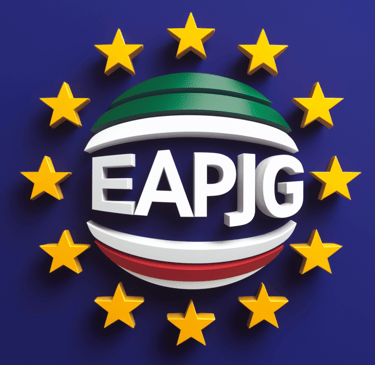
International Day of Democracy
- September 15 - We Promote Democracy and Human Rights.
Pakistan's Struggles in the International IT Sector: Customs and Government Policies at the Forefront
Danielle Dufour vividly illustrates the obstacles faced by IT companies operating in Pakistan.
TECH & IT
Shahid Ameer Goraya
9/9/20244 min read


Government Policies: A Landscape of Uncertainty
Government policies are another critical area where Pakistan's IT sector faces challenges. The policy framework governing the IT industry is often inconsistent and outdated, creating an uncertain environment for businesses. Frequent changes in regulations make it difficult for IT companies to plan long-term investments, hindering growth and innovation.
Even when policies are in place, their implementation is often lackluster. A lack of coordination between various government agencies and insufficient technical expertise leads to poor execution of initiatives that could otherwise benefit the sector. Additionally, while there are government-backed programs aimed at supporting IT startups, these are frequently underfunded and poorly managed, leaving many promising ventures without the necessary resources to scale and succeed.
The protection of intellectual property (IP) is another area where Pakistan falls short. Weak enforcement of IP rights discourages innovation and investment, as developers and companies risk having their work copied or stolen without any significant recourse. This lack of robust IP laws is a significant deterrent to both local innovation and foreign investment.
Infrastructure and Education: The Need for Modernization
Beyond policy and customs issues, Pakistan's IT sector is also held back by inadequate infrastructure and a mismatch between education and industry needs. Although internet infrastructure has improved in some areas, many regions still suffer from slow and unreliable connections, a critical disadvantage in an industry that relies heavily on fast and stable internet access.
Dufour’s experience also highlights the infrastructure challenges faced by IT professionals in Pakistan. "Our team members have been missing full days of work on a fairly regular basis due to power and internet outages," she noted. "It's frustrating because our engineers are smart, talented, and eager to learn, but they are continuously blocked by poor internet and now, from accessing better tech to help them grow their skills."
Educational institutions in Pakistan are not adequately preparing students for the demands of the global IT market. There is a considerable gap between the skills taught in universities and those required by the industry. This skills mismatch contributes to a shortage of qualified professionals, further hampering the sector's growth.
Investment in research and development (R&D) is also sorely lacking. Without a focus on R&D, Pakistan's IT sector struggles to innovate and stay competitive. Government incentives for R&D could play a crucial role in fostering a culture of innovation, but such initiatives are currently insufficient.
Political and Security Challenges
Finally, Pakistan's political instability and ongoing security concerns further complicate the situation. Frequent changes in government and a volatile political landscape create an uncertain business environment, making investors wary. Additionally, security issues in certain regions of the country deter international clients and investors, who may perceive Pakistan as a risky place to do business.
The Way Forward
For Pakistan to realize its full potential in the international IT sector, comprehensive reforms are needed. Addressing the challenges posed by customs regulations, government policies, infrastructure, and education is essential. By creating a more conducive environment for IT businesses and professionals, Pakistan can position itself as a formidable player in the global IT industry. However, this will require not only policy changes but also a concerted effort to modernize the country's infrastructure and invest in its human capital.
The world is rapidly advancing in technology, and for Pakistan to keep pace, it must overcome these internal obstacles and embrace the changes necessary to thrive in the international IT arena. As Danielle Dufour and many others have learned the hard way, Pakistan’s IT potential is immense, but only if the country can remove the barriers that hold it back.
Pakistan, a country with immense potential in the global Information Technology (IT) sector, continues to lag due to a series of structural and policy-related challenges. Despite a wealth of talent and the potential for exponential growth, the nation's IT industry is hampered by a range of issues, most notably those stemming from customs regulations and government policies.
Customs Regulations: A Major Bottleneck
One of the most significant barriers to the growth of Pakistan's IT sector is the high import duties on essential technology products. Importing the latest computers, servers, and networking tools comes with a hefty price tag, thanks to these steep duties. This escalates the cost of doing business in the IT sector, making it difficult for local companies to compete on the international stage.
A striking example of these challenges is the recent experience of Danielle Dufour,
Pakistan's Struggles in the International IT Sector: Customs and Government Policies at the Forefront
As a reference a recent incident involving Danielle Dufour, founder of the female-led tech company Code Reroute, vividly illustrates the obstacles faced by IT companies operating in Pakistan.
the founder of the female-led tech company, Code Reroute. Dufour's company, based in Canada, attempted to ship two brand-new computers to their development team in Karachi. However, they were met with unexpected and exorbitant demands from Pakistani customs officials.
"In Canada, we pay 5% import fees on electronics like computers, but in Pakistan, you pay whatever the customs agent feels like charging," Dufour recounted. "We ended up having to pay the equivalent of buying another brand-new computer just to get our shipment released."
The situation was further exacerbated when customs officials blocked the option of returning the computers to Canada, threatening instead to auction them off if a decision wasn’t made within 15 days. Such arbitrary and excessive demands not only strain international business relationships but also severely impact the operations of local IT teams, who are left without the necessary tools to perform their work effectively.


EAPJG © 2024 All rights reserved.
E.mail: info@eapjg.press
Phone: +49177 130 69 24
Address: Franz-Böckle-Straße 16, 53125 Bonn, Germany
Follow Us
Opening Hours
By Appointment Only




